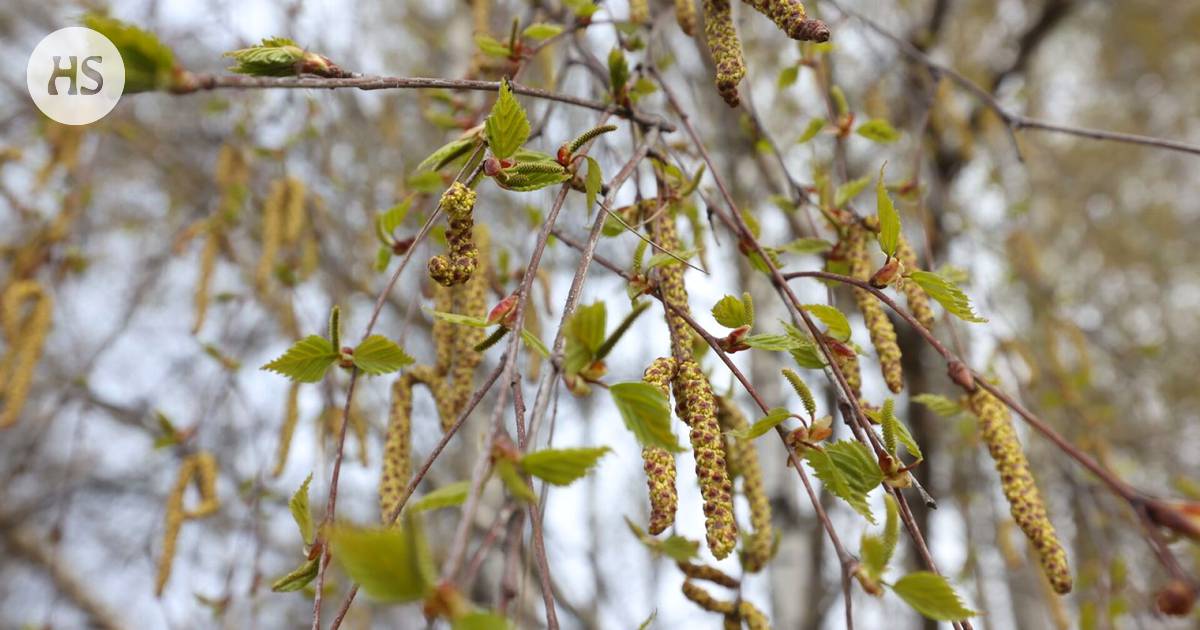The Finnish company Desentum recently raised 12 million euros in funding for the development of an allergy vaccine.
Finn the drug development company Desentum aims to do something that could revolutionize the lives of many Finns. The company is trying to develop a vaccine to treat birch allergy.
Strictly speaking, it is not a vaccine, as the preparation does not prevent allergies, but aims to tolerate allergy sufferers and develop a long-term tolerance for them towards the cause of the allergic reaction. If successful, it could significantly speed up the treatment of severe allergies.
Typically, allergies are treated in three different ways, either by avoiding the substance that causes the allergy, with medications that relieve symptoms, such as antihistamines, or with tolerance therapy.
It is the tolerance treatment that Desentum aims to enhance with its vaccine.
The problem with the current tolerance treatment is that it is not particularly effective, says Desentum’s CEO Pekka Mattila. The treatment periods are long, the treatments cause side effects and the effectiveness is variable.
In tolerance therapy, the cause of the allergic reaction, or allergen, is given to the patient in increasing doses, either by injection or orally. Thus, the body’s immune system is taught to tolerate the allergen.
For people suffering from allergies, the treatment causes some allergy symptoms before the immune system learns to tolerate the substance. Because of that, the treatment has to be started with small doses, which are gradually increased.
“The treatment takes a really long time, three to five years. Some of the treatments can continue throughout life,” says Mattila.
That’s why many leave the tolerance treatment unfinished.
Desentumin according to the “allergy vaccine” developed by it, the tolerance treatment can already produce results in a significantly shorter time.
The company is currently conducting a clinical trial of a vaccine aimed at treating birch allergy in Canada. In it, patients suffering from birch allergy were given 10 vaccinations over 12 weeks.
The results are promising. In some patients, the allergy symptoms have completely disappeared. In a large part, the symptoms have decreased by 70–80 percent.
“This is the result of allergy immunotherapy [siedätyshoidossa] has never been seen before,” says Mattila.
The allergy vaccine developed by Docentum is based on hypoallergens. They mean allergens whose ability to cause an allergic reaction has been weakened.
The purpose is that the vaccines do not cause an allergic reaction to the patient during the treatment, but the body nevertheless recognizes the substance as an allergen to which it is tolerated. So it’s as if a person with a birch allergy is exposed to birch pollen without the nose and eyes starting to run. Thanks to this, the substance could be given to the patient in larger quantities at once and thanks to it, the length of the tolerance treatment could be shortened.
“Based on the results so far, the treatment seems effective. Compared to the 3-5 year treatment period of tolerance treatment, during 12 weeks there has been a really significant decrease in symptoms,” says Mattila.
In the year Desentum, founded in 2011, originated at the Technology Research Center VTT. Its allergy vaccine is based on technology and research developed at VTT and the University of Eastern Finland.
Recently, Desentum collected EUR 12 million in financing ahead of schedule through a financing round organized by the investment service company Springvest.
Thanks to the received funding, the company is already organizing its next vaccine trials. They are intended to find out how high the vaccine dose is optimal and how long the treatment provides protection.
It is assumed that after the first treatment period, annual booster shots would be enough to reduce allergy symptoms.
“Usually the immune system works in such a way that once it manages to produce something protective, it stays in the memory for a long time,” says Mattila.
According to Mattila, however, it will take at least four years for Desentum to apply for a sales and marketing license for its vaccine. At the end of next year, the company will perhaps be in a situation where it could start planning clinical trials with larger test groups, and after that the authorities would still make their own reports on the safety and efficacy of the drug.
Disentangled however, is not satisfied with solving the treatment of birch allergy. Currently, the company is also developing a treatment for peanut and hay allergies.
“Perhaps in the future, pujo and ragweed will be included [tuoksukki]which is a major cause of allergies in America,” says Mattila.
“We have the tools to approach many types of allergies and develop vaccines for them.”
